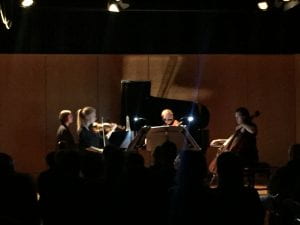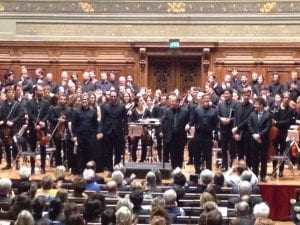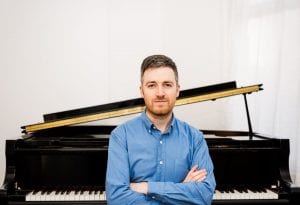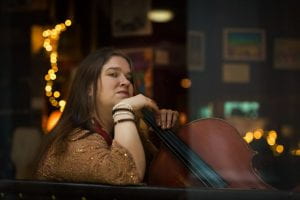
Thanks for joining us today, Shirley. Could you start by telling us something about your current performance projects?
Sure. I am currently performing with my trio/quartet, with whom I recently released my first album, ‘Long Story Short’. We have quite a few performances this year, and hopefully a tour next spring. I’m also writing material for my next album, although that may take a while to be ready for performance! Long Story Short is available here: Long Story Short
Other projects which I lead/co-lead are a duo with reeds player James Arben – this is a freely improvised project, mostly as a duo, but sometimes with guests. We have recorded quite a bit of music recently, so may well release an EP or an album with that.
An extension of that project is a quintet, which adds pianist Alexander Hawkins, drummer Jon Scott and bassist Liran Donin. We gave our first gig recently and we all felt it worked, and there will be more coming with that project soon. A freely improvised group is so dependant on implicit understanding and trust between the musicians, so we were all very happy that this worked.
I also have a jazz string trio with violinists Matt Holborn and Richard Jones. This is a relatively new project that we have been trying to put together for about 2 years.The three of us felt that string players in jazz often get overlooked. Matt and Rich are both amazing jazz violinists, but also very different players so it’s an interesting balance.
Another group I play in is Issie Barratt’s band Interchange, which is an all-female dectet that she founded in 2016, in order to address the imbalance of gender in the jazz world. We were all commissioned to write a work for the group, and the album ‘Donna’s Secret’ is due for release later this year.
My final, and one of my favourite bands ever, is the trio ‘Sawa’, with vocalist Alya Al-Sultani and pianist Clemens Poetzch. This was founded in about 2015, and is a unique synthesis of Iraqi folk music, jazz, chamber music and free improvisation. As Clemens lives in Germany, we don’t get to play together that often, but I love it when we do! Our EP is here : Sawa EP
What is the most exciting country/venue/space that you have played at?
I suppose, having lived in Jerusalem for 10 years, that would have to count in its entirety as the most exciting (and challenging) place to have existed musically in. It was incredibly fertile and I was involved in all sorts of things, from jazz to classical Arabic and Turkish music, all of which inform my musical activities now.
What is the highlight of your teaching career so far?
It’s difficult to pin-point one particular thing, as I get different things out of different contexts, and they all present different challenges! I really enjoy teaching at the RCM Junior Department, where I do a lot of improvisation work, since this is very marginalised in classical education – although I think it is better than it was 15 or so years ago.
A couple of particular highlights were a workshop I gave for Jazzlines in Birmingham a few years ago – the students were so keen and eager to learn! We worked on a North African tune completely by ear, and performed it at the end of the session in the Symphony Hall Foyer. The group included Xhosa Cole, who recently won the BBC Young Jazz Musician of the Year. He came up at the end and extracted a list of everything I knew about world music – he was so keen to absorb everything he could, which is an absolutely fantastic attitude to have!!
I also had Jacob Collier in some of my improvisation classes at the Royal College of Music when he was about 14, and I remember him turning a large metal cupboard into a drum kit for one lesson! He has the type of mind and creative ability that was always going to flourish, but it was an interesting experience to see it that young, and watch it in action.
If you could give one piece of advice to music students, what would it be?
Learn to use your time well!! And always try to be specific about what you are practising, and what needs working on. Reserve some time for developmental work, which can take time, rather than only learning stuff for upcoming gigs. I guess that’s 2 pieces – but never mind!
What would you recommend students do beyond practising their instrument/voice and rehearsing?
Again, learn to use your time well. And be on time for things. The music profession, especially the session world, is very highly time-constrained, and being on time is a central part of your professionalism and a really good habit to get into early. So much is about taking responsibility for yourself, being respectful to others, and learning to discuss any issues – musical or otherwise – calmly and professionally as well.
How has the music world changed since you were a student?
This is a huge question, as things are very different in different parts of the music world. I think in many ways the creative scene has become more open. There’s a recognised renaissance of British Jazz, and some really exciting bands around, as well as some really interesting cross-over-y type projects. Also, the development of the technological side of things – sites like YouTube have increased access to music and made releasing videos much easier.
I don’t want to get into the impact of streaming and so forth, although that’s definitely a topic worth discussing, and any students who are making and releasing their own music should absolutely be aware of the models of companies like Spotify, which is terrible for independent artists, although it’s also a really useful resource. Bandcamp is much better for musicians, as most of the revenue from sales actually goes to the bands, so I now try and make sure that as many people as possible know this. People tend to buy music from iTunes or other sites because it is easy and familiar, but it’s awful for musicians as the artist gets something like 3% of the revenue – as opposed to 85% from Bandcamp. This is a big change since I was a student.
My website is here : Shirley Smart



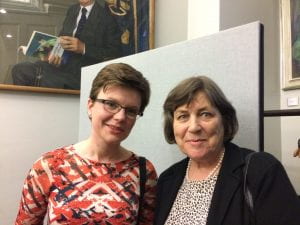



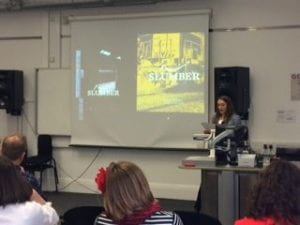

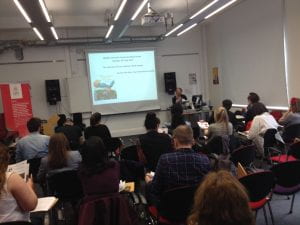

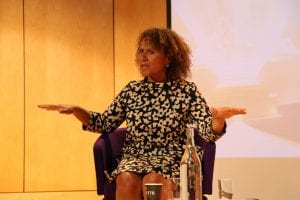
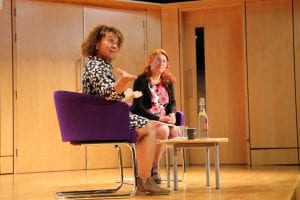
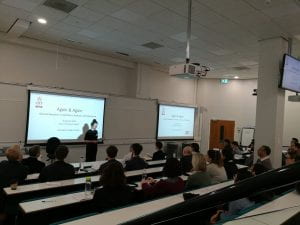

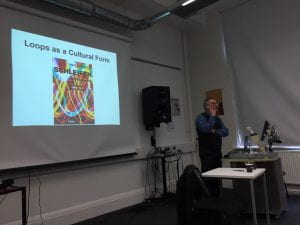 .
. 